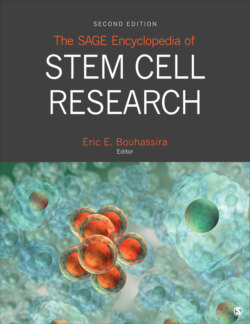Читать книгу The SAGE Encyclopedia of Stem Cell Research - Группа авторов - Страница 426
На сайте Литреса книга снята с продажи.
Phase II Clinical Trials
ОглавлениеPhase II studies test the efficacy of a treatment. Most are “double-blinded” randomized trials (neither the patients nor the researchers know who receives the experimental treatment and who gets placebo) aimed at determining comparisons of relative safety and effectiveness of the new drug. The results are then forwarded to the FDA and the pharmaceutical company for approval to progress to Phase III trials. This phase can last from several months to two years, and involves up to several hundred patients. Some noteworthy phase II trials in the research for MS include the following.
Alternative Treatment Paradigm for Natalizumab Trial. A study being done to determine the difference between natalizumab therapy followed by two different withdrawal strategies using glatiramer acetate (GA), that is, GA alone and GA plus corticosteroids in preventing clinical relapses and decreasing other markers of disease activity in patients diagnosed with MS. It is predicted that the latter regimen will help reduce recurrences of post natalizumab discontinuation earlier than the effect of GA alone and early reconstitution of peripheral and CNS immune homeostasis.
Caprylic Triglyceride for Treatment of Cognitive Impairments in Multiple Sclerosis. This study aims at exploring the possibility of providing an alternative energy source, namely, caprylic triglyceride in place of glucose (a type of sugar), the natural fuel for healthy brain cells. It is believed that in MS, glucose is not converted into energy as efficiently as in a healthy brain, which can lead to a decrease in cognitive function. Caprylic triglyceride may work to bypass this problem by being metabolized in the liver and used by the brain.
Estriol Treatment in Multiple Sclerosis (MS): Effect on Cognition. This trial will ascertain whether treatment with an estrogen pill combined with standard MS anti-inflammatory drugs can improve cognition as compared to treatment with a placebo pill in combination with standard anti-inflammatory drugs in women with MS.
Comparison of Subcutaneous Interferon Beta-1a With Glatiramer Acetate in Patients With Relapsing Multiple Sclerosis.
Assessment of Clemastine Fumarate as a Remyelinating Agent in Multiple Sclerosis. Efficacy, Safety, and Tolerability of Plovamer Acetate (Pathway 1): a Phase II trial that will test four different doses of plovamer acetate against the active comparator copaxone in subjects with RRMS.
Study of Tcelna (Imilecleucel-T) in Secondary Progressive Multiple Sclerosis. To ascertain the use of biological agents like Tcelna synthesized from autologous pool of myelin reactive T cells (MRTC) in treatment of MS.
Safety and Brain Protection Effects of the Green Tea Extract Theaphenon 95 Percent (95 Percent Pure EGCG) in Multiple Sclerosis. Epigallocatechin-3-gallate, a potent antioxidant found in tea, can protect brain cells in patients with MS. The study will compare changes in n-acetyl-aspartate (a chemical that reflects the number of neurons and their metabolism) between people with MS treated with EGCG with MS patients treated with a matching sugar pill.
Trial of Ginkgo as a Treatment for Cognitive Problems in Multiple Sclerosis.
Testosterone Treatment for Multiple Sclerosis.
